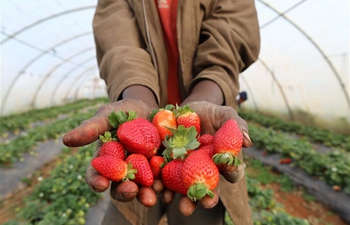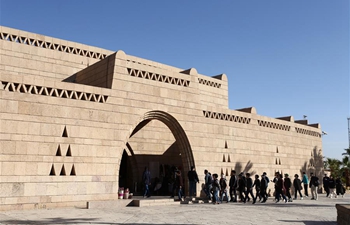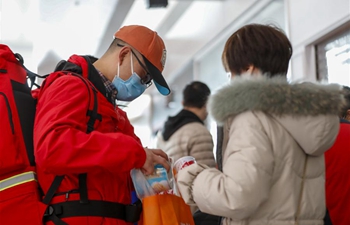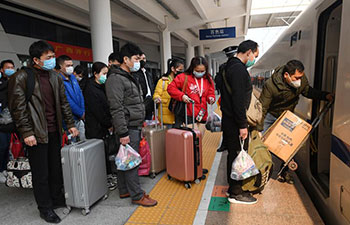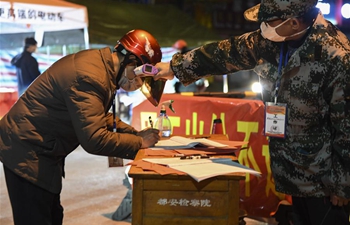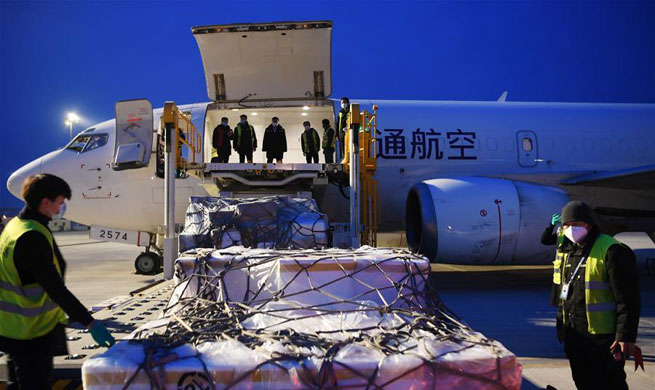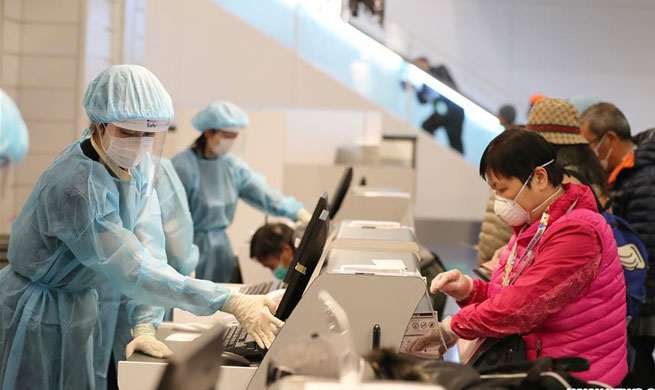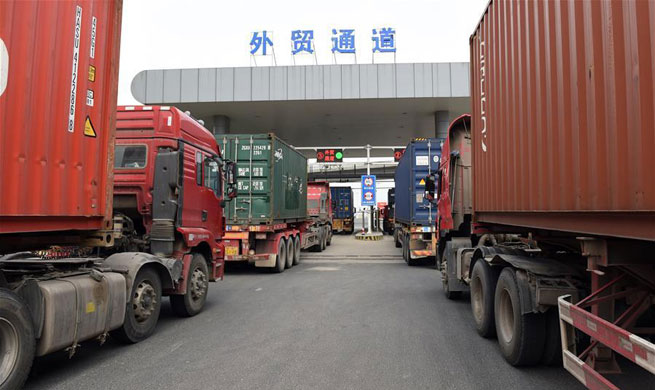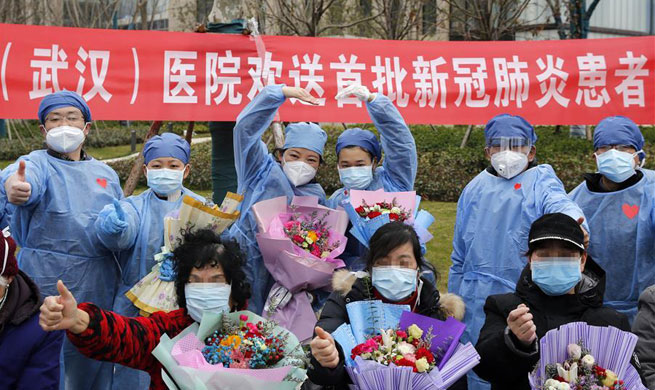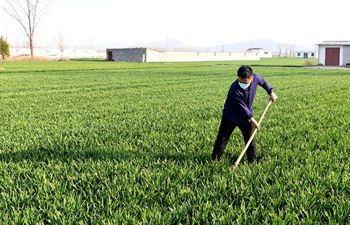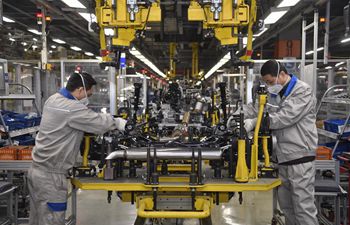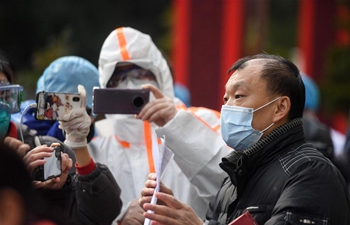GUANGZHOU, Feb. 20 (Xinhua) -- Over the past weeks, Feng Limin has been working at least eight hours a day and making his contribution to China's fight against the coronavirus outbreak.
His "battlefield," though, is not at a frontline hospital treating the infected patients, but in a lab in south China's Guangdong Province where a huge number of nucleic acid samples are sent in daily to be tested for the virus.
Feng is the technical director of a virus diagnosis center of Guangzhou KingMed Diagnostics Group, and a Polymerase Chain Reaction (PCR) tester, whose work is crucial in identifying infection cases and containing the spread of the virus.
Rapid and effective screening of nucleic acid samples can enable the detection of latent sources of infection, winning precious time for the treatment of patients and medical isolation of close contacts.
As enterprises in Guangdong gradually resumed operations amid the epidemic, the need for nucleic acid testing for those returning to the province has greatly increased, putting immense pressure on third-party medical testing laboratories like KingMed.
Wearing thick protective suits, goggles, and double-layered gloves, Feng and his colleagues worked around the clock in the lab testing samples. As the chief operator of the process, Feng needed to extract and prepare samples in a biosafety cabinet in the negative pressure PCR laboratory.
As the extraction process requires direct contact with the sample and can only be done manually, the operator cannot leave the cabinet during the process in order to prevent the spread of the virus.
They are even not allowed to make large movements, often with their arms suspended in the air for hours. Each shift is a demanding test of the tester's physical endurance.
"I have been able to hold on largely because I have been working out for many years," Feng said.
To reassure his family members that such close contact with the virus will not get him infected, Feng had to demonstrate the process to them via a video call.
"I am confident that operations that strictly follow scientific procedures with professional protection can avoid potential danger," he said.
At Feng's lab, time is of the essence. To deal with the increasing number of incoming samples, which now top over 10,000 daily, Feng and his colleagues have made great efforts in speeding up the screening process while ensuring its accuracy and the safety of the testers.
When the first batch of samples came, it took testers one and a half hours to complete three testings. After adopting a new method, the lab has now increased the screening speed fivefold, and a team of testers can test 900 samples in eight hours.
KingMed has also accelerated its pace of training new testers. Within weeks, more than 100 new staff with PCR testing licenses joined the screening work.
"After choosing the optimal testing reagent, we are making our best efforts to have the test results ready within 24 hours," said Chen Jingxian, the head of KingMed's respiratory diseases unit.
"I was in high school when SARS broke out 17 years ago. I then chose medicine as my major in college," said Feng. "Now, it is my duty and honor as a medical worker to do my part at this critical moment."





